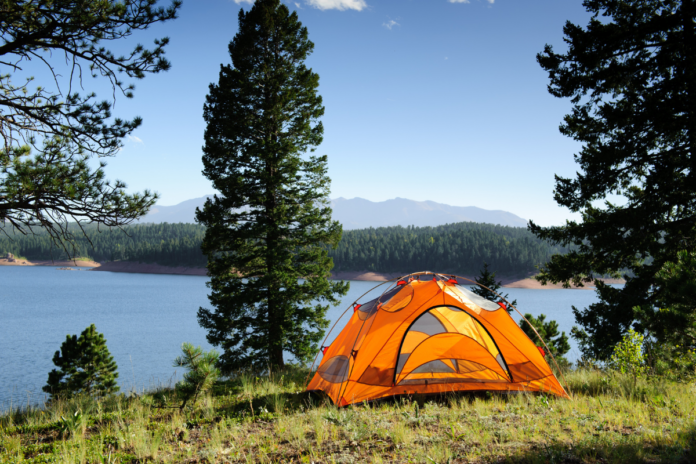Camping is a unique adventure that reconnects you with nature and offers a break from the hustle and bustle of everyday life. To make the most out of this experience, it’s crucial to be well-prepared. Carrying the right camping essentials ensures not only comfort and safety but also enhances your overall enjoyment of the trip. In this blog post, we’ll explore the key items every camper should have, from shelter and sleeping gear to cooking supplies and food choices.
Smart packing is the cornerstone of a successful camping trip. It involves more than just throwing items into a bag; it’s about choosing the right gear that is both necessary and efficient. This includes items that maximize comfort in the great outdoors, ensure a good night’s sleep, and provide practical solutions for eating and staying hydrated. By focusing on the essentials, you’ll be able to enjoy your camping adventure to the fullest without being weighed down by unnecessary items.
Shelter and Comfort: Choosing the Right Tent
When it comes to camping, your tent is your home away from home. Selecting a sun shade canopy for outdoors is essential. The size of the tent depends on the number of people using it and the amount of gear you plan to store inside. For a more comfortable experience, consider a tent that offers extra space. Durability is also crucial – look for tents made from high-quality materials that can withstand various weather conditions. A good tent is an investment in your camping comfort and safety.
Weather resistance is a key factor in choosing a tent. You need a shelter that can stand up to rain, wind, and possibly even snow, depending on your camping destination. Look for tents with a high waterproof rating and sturdy poles that can withstand strong winds. Good ventilation is also important to reduce condensation and maintain a comfortable environment inside the tent. Investing in a weather-resistant tent means you can camp confidently in various conditions.
Ease of setup is another critical consideration when selecting a tent. Look for tents that are designed for quick and efficient assembly, which is particularly important if you arrive at your campsite late or in inclement weather. Instant tents or those with color-coded poles can significantly reduce setup time. Remember, a tent that is easy to set up makes your camping experience much more enjoyable, especially after a long day of hiking or driving.
To enhance your camping experience, don’t overlook the importance of tent accessories like groundsheets and spikes. A groundsheet, placed under your tent, protects against moisture and sharp objects on the ground. It also adds an extra layer of insulation. Quality spikes are essential for securing your tent, especially in windy conditions. These accessories may seem minor, but they greatly contribute to the stability and longevity of your camping shelter.
Ensuring a Good Night’s Sleep: Sleeping Bags and Pads
A high-quality sleeping bag for camping is crucial for a comfortable night’s sleep. When choosing a sleeping bag, consider the climate and weather conditions of your camping destination. Sleeping bags are rated by temperature, so pick one that suits the coldest temperatures you expect to encounter. Also, think about the bag’s shape – mummy bags are warmer but less spacious, while rectangular bags offer more room to move.
Comfort is key to a good night’s sleep, and choosing the right padding is essential. Sleeping pads not only provide cushioning from the hard ground but also offer insulation. There are various types of pads available, including foam pads, self-inflating pads, and air mattresses. Each has its own advantages in terms of comfort, insulation, and portability. Consider the type of camping you’ll be doing and your personal comfort preferences when selecting a pad.
Sleeping bags come with two main types of insulation – down and synthetic. Down is lightweight, easy to compress, and offers excellent warmth, but it’s not the best choice in wet conditions. Synthetic insulation, on the other hand, is less expensive, insulates even when wet, and is hypoallergenic. However, it’s bulkier and less durable than down. Consider the pros and cons of each type based on the conditions you expect to encounter and your budget.
For backpackers, compact and lightweight sleeping options are essential. Look for sleeping bags and pads that are specifically designed for backpacking – they are typically narrower, lighter, and more compressible. While these may sacrifice some comfort, they make up for it in portability and ease of carrying. Balancing weight and comfort is key for backpacking trips, where every ounce counts.
Cooking in the Wild: Essential Camp Kitchen Gear
A successful camping trip often depends on good food, and having the right portable stoves and cookware for camping can make all the difference. A portable stove should be lightweight, easy to use, and efficient in fuel consumption. Alongside the stove, include lightweight, durable cookware – pots, pans, and utensils that can withstand the rigors of outdoor cooking. The right cooking gear allows you to prepare a variety of meals, keeping you energized for your adventures.
When choosing a portable stove, consider the fuel type and efficiency. Stoves typically run on propane, butane, or isobutane mixtures. Each has its advantages in terms of availability, burning efficiency, and suitability for different temperatures. Propane is widely available and performs well in cold weather, but canisters are heavier. Butane and isobutane stoves are lighter and work well for backpacking in moderate climates. Select a stove that best suits your camping style and location.
Selecting the right utensils and cookware is crucial for an enjoyable camping cooking experience. Opt for lightweight and multi-use items that can perform various functions – for example, a pot that can be used for boiling water and cooking meals. Silicone, aluminum, or stainless steel materials are durable and easy to clean. Compact, collapsible items are also great for saving space. Remember, the goal is to have functional, versatile, and durable cookware that makes camp cooking a breeze.
Proper food storage is essential in the wilderness, not only to keep your food fresh but also to prevent attracting wildlife. Invest in airtight containers and coolers that can keep perishables at the right temperature. For backcountry camping, consider bear-proof containers if you’re in bear country. Always store your food away from your sleeping area and elevate it if possible. Responsible food storage is key to a safe and enjoyable camping experience.
Embracing the art of camping means mastering your camping checklist. It’s about ensuring that you have all the essentials for safety, comfort, and enjoyment. This checklist goes beyond just packing; it’s about preparing for various scenarios you might encounter in the great outdoors. From unexpected weather changes to minor injuries, being well-prepared means you can handle any situation with confidence. Remember, a thorough checklist is your best friend in making your camping experience as enjoyable and stress-free as possible.
Camping is not just an activity; it’s an experience that connects you with nature. With the right gear, including a portable sun shade canopy, and preparation, you can fully embrace the beauty and tranquility of the outdoors. Whether it’s sleeping under the stars, cooking a meal over a campfire, or exploring the wilderness, each aspect of camping brings its own joy and challenges. By equipping yourself with essential gear and knowledge, you’re not just surviving in nature; you’re thriving and creating unforgettable memories.










